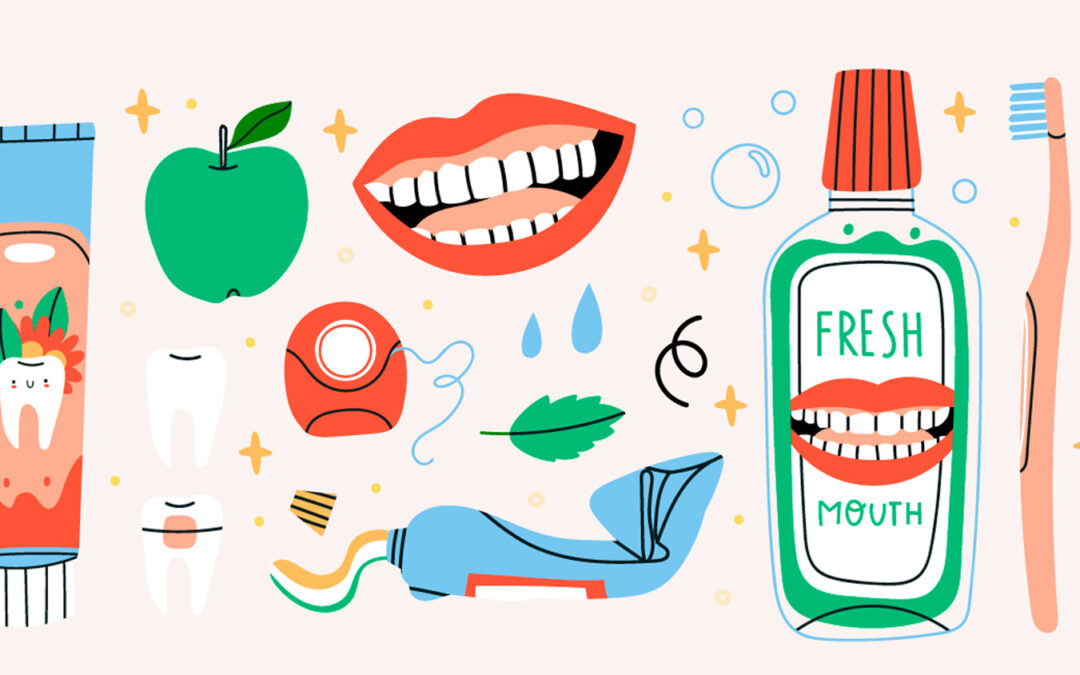If you have ever sat down in the dentist’s chair for a regular cleaning, only to receive the news that you have a cavity that needs filling, or you need something more serious like a root canal, you probably had this momentary thought: I need to take better care of my teeth.
Good oral habits are just that – habits that we either keep up or we don’t. Sometimes we have good habits for years and they start to slide. Maybe you never had good oral habits.
It doesn’t matter how old you are, what your dental history is, or what you’ve experienced so far.
Here are 5 simple tips that can turn your oral health around and help you maintain healthy teeth from here onwards.
1. Brush twice a day with an electric toothbrush.
We highly recommend investing in an electric toothbrush. They come in many models and price points. Although they are more expensive than manual toothbrushes, it is well worth the investment. Set your two-minute timer and do a thorough brush twice a day.
2. Floss or waterpik once a day.
Electric toothbrushes are pretty good at reaching into those nooks and crannies, but not that good. If you just brush the surface of your teeth, you’ll miss the food debris and bacteria hiding between your teeth – this is the stuff that causes plaque build-up, gingivitis, and cavities. Make sure you floss or waterpik at least once a day to prevent that build-up! If you do this, you are much less likely to suffer from cavities in the future.
3. Be mindful of a healthy diet.
Go to the source! Sugary food is hard on teeth. It causes more bacteria to be trapped between your teeth, and it breaks down the hard enamel. Sugar is in a lot of food, so we recommend choosing foods that are low in sugar. If you do consume sugary drinks and foods as a treat, brush and floss right after!
4. Use toothpaste with fluoride.
Fluoride is extremely helpful in strengthening tooth enamel, making your teeth resistant to decay. This makes it a crucial part of your long-term oral health strategy! Make sure your toothpaste has fluoride in it. If you have concerns about fluoride, ask your dentist any questions that you have!
5. Take clenching and grinding seriously.
If you are a tooth grinder or clencher, you aren’t alone! Grinding and clenching is common, and it can be caused by many factors from offset tooth alignment to anxiety. Grinding is very hard on your teeth, and the effects of grinding and clenching only get worse with time. Talk to your dentist if you have jaw pain, you notice your teeth are flattening, or your partner has told you that you grind at night. There are many ways to prevent grinding and clenching, and this can transform your oral health!

So there they are. Remember that taking care of your teeth today is a gift for your future self. Any habit can be difficult to begin and maintain, so if you find that you’re slipping on your brushing and flossing habits, seek support from your dentist! We have a lot of tricks up our sleeves.

